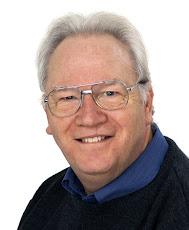Richard Hay is an Anglican priest who has a unique understanding of how the European Union works. For many years he held the office of the senior civil servant in the European Commission. At the same time he was a Church Warden of church in Brussels where a friend of mine, now a partner in rural ministry and mission, was priest. Knowing of his uniquely authoritative voice within the discussion the following statement was passed on to me. It is published here in the hope that in the midst of all the prejudiced comments it might bring some light rather than heat.
Some thoughts – we have others, but we’ll stop
there! They come with warm best wishes
from us both and our prayer for wisdom for you as you explore the issue and in
God’s grace decide how you will vote.
Now that the referendum date is
known, we are writing to everyone on our address list. Two years ago we were challenged to do this
if a referendum was called.
We think it
matters how the UK votes. The media
debate is often ill-informed (or worse).
So here are comments that try to explain why we think the UK should stay
in the EU. They are meant to contribute
to your thinking: each of us needs to come to our own conclusion, and we won’t
all follow the same reasons. Thank God
for difference! (Background: we lived in
Brussels for 19 years and Richard worked for the European Commission for 18.)
On cost, we hear of ‘huge sums of
cash’ going from the UK to the EU – or other conveniently vague terms hiding
the fact that it’s only a very small part (1 – 2%) of UK public spending.
Migration is a problem. But the big issue is not migrants from the EU
- it’s those who come from non-EU countries, where we already have full control. Our experience shows that it’s very difficult
to manage. But it’s a problem we share with
other developed countries. Surely we
face it better together than alone. And
we must avoid being fearful of migrants (as some would wish us to be).
Violence is in the hearts of a few of every faith; the vast majority of people
of every faith are peaceful. (We also have to confess to a bias: our local
general hospital is only kept going by a very large number of devoted staff of
many faiths from all around the world. We
give thanks for them, tinged with shame because we know that in their own
countries healthcare is far below the standards of Western Europe.) Compared to this, migration from within the
EU is a side-show; mostly it brings us younger people to work and pay UK taxes,
while just about as many UK citizens go and live in other EU countries, often
in retirement.
But we really shout at the radio about sovereignty (‘being ruled by
unelected bureaucrats’):
- very few of our UK laws are ‘made in Brussels’. Over the past 20 years, only 1.4% of main Acts of Parliament, and 11.8% of secondary laws, even mention the EU (says the House of Commons library). We have sovereignty for the vast majority of issues
- all EU legislation is decided by the European Parliament (elected directly), and Council of Ministers (who are elected to national parliaments). The (unelected) Commission can only propose legislation, and if so decided administer it. As in the US, the power to propose law is separated from the power to decide. (And now the European Parliament has to approve the Commission and its President)
- having formal power doesn’t necessarily give control. Some of us remember the 1960s, when the UK government did everything it could to avoid devaluing the pound (‘in your pocket’); in the end they were overwhelmed. Control can be found only by the right framework of government for the issue, and in some areas we have to work with others to have real impact
- the emotive claim that ‘we’ need to be in charge goes deeper than effectiveness. We all cling to our independence. But we (like every part of creation) cannot live fully on our own. Despite Donald Trump’s assertions, we don’t live in a ‘zero-sum’ world (well said, the Pope, urging bridges, not walls). Our flourishing depends on working together, on taking account of others’ needs, on accepting that better things can and are done together.
The EU is a framework in which to
do together what is needed to sustain peace based on democracy, still a
challenge in Europe (as Russia, the Middle East and migration remind us). Within, we have weight to shape this process,
and also to share in choosing directions for the environment and much
scientific research, as well as some economic sectors. Of course, the EU has many faults. But we should work from the inside to adapt
and strengthen the EU with the many others who also see need for change, rather
than petulantly asking for a ‘special deal’ and testing the patience of our
friends.
Many of us pray regularly for God’s
Kingdom to come. Government is a human
need, but the Bible, and history more generally, is full of examples of abuse
by the power-hungry. Sovereignty is
about means, not ends. God’s Kingdom is concerned
instead with values and results in public policy and private life of generous
self-giving, forgiving, respect and acceptance of difference. The only power in God’s Kingdom is love. Being in the EU seems a bit nearer love for
our neighbour than leaving ‘to do our own thing’.

No comments:
Post a Comment